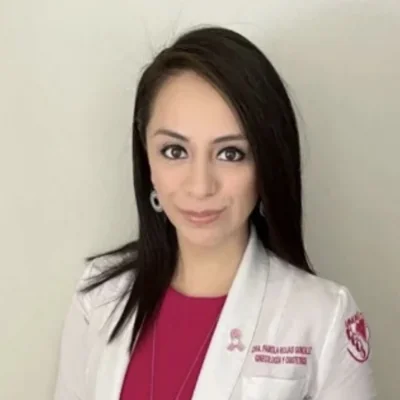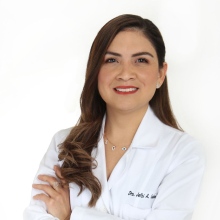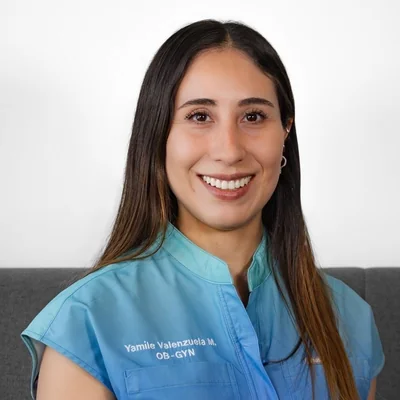 Medication | Internist
Medication | InternistGuide to Obtaining Ozempic in Mexico
How much is ozempic in Mexico? In Mexico you can get a pen for $154-$228. Complete guide to safely o...
By Nomadoc | Feb 22 2025
The latest news, articles, and resources, sent to your inbox weekly.
If you're wondering how much is IVF in Mexico, you're not alone. Many expats and international patients seeking fertility treatments have discovered that Mexico offers a compelling combination of quality care with savings of 60-70% compared to US prices. This comprehensive guide answers your key questions about IVF cost in Mexico, safety standards, and what to expect from treatment.
Quick Answer: IVF in Mexico costs $4,000-$8,200 compared to $12,000-$25,000 in the US, with top-quality clinics offering safe, effective treatments.
How much does IVF cost in Mexico? This is the most common question from international patients, and the answer is significantly less than what you'd pay in the US or Canada. While IVF in the United States typically costs between $12,000 and $25,000 per cycle (excluding medications), IVF cost in Mexico ranges from $4,000 to $8,200 for a complete cycle.
Why is IVF cheaper in Mexico? Several factors contribute to the lower costs:
| Treatment | Cost Range (USD) | Notes |
|---|---|---|
| Basic IVF cycle | $4,000 - $8,200 | Includes egg retrieval, fertilization, and fresh embryo transfer |
| IVF with ICSI | $5,500 - $9,000 | Additional technique for male factor infertility |
| IVF with donor eggs | $7,300 - $12,500 | Includes compensation and screening for donors |
| Embryo donation | $6,500 - $15,200 | Using previously created embryos |
| Medications | $1,000 - $3,000 | Additional cost for stimulation medications |
| PGS/PGT-A testing | $4,000 - $6,000 | Genetic screening of embryos |
| Frozen embryo transfer | $1,000 - $2,500 | Using previously frozen embryos |
It's important to note that while the base price for IVF in Mexico is significantly lower than in the US and Canada, patients should be aware of potential additional costs:
Some clinics offer all-inclusive packages that may incorporate airfare and hotel stays, particularly in tourist destinations like Cancun. These comprehensive packages can provide even greater value while simplifying the logistics of treatment abroad.
Is IVF in Mexico safe? Yes, when you choose accredited clinics with proper certifications. Many Mexican fertility clinics maintain international standards of care and safety, often exceeding those found in some US facilities.
Safety standards in top Mexican IVF clinics include:
Fertility treatments in Mexico are regulated by the General Law of Health and the National Center of Transplants. The regulatory environment allows for:
When researching clinics in Mexico, expats should look for:
Is IVF painful? This is one of the most common concerns for first-time IVF patients. The good news is that most IVF procedures involve minimal discomfort, and pain management options are available throughout the process.
Pain levels during different IVF stages:
Does IVF hurt more in Mexico? No, pain levels are the same regardless of location. Mexican clinics use the same techniques and pain management protocols as clinics worldwide.
Can you choose gender with IVF? Yes, gender selection is possible through IVF using Preimplantation Genetic Testing (PGT), and Mexico offers more flexible regulations for this procedure compared to many other countries.
How gender selection works with IVF:
Can you pick gender with IVF for twins? Yes, if multiple embryos of the desired gender are available and your doctor approves transferring two embryos.
IVF success rates in Mexico range from 35% to 65% for most reputable facilities, with some top clinics reporting rates up to 70% for patients under 35. These rates are comparable to or better than many US clinics, especially considering the significantly lower cost.
Success rates by age in Mexico's top clinics:
Factors that influence IVF success stories in Mexico:
How do Mexico's success rates compare globally?
Reputable clinics should provide personalized success rate estimates based on your specific medical history rather than quoting only their highest statistics. Always ask for age-specific and diagnosis-specific success rates.
Where should you get IVF in Mexico? The best location depends on your budget, timeline, and preferences. Here's a comprehensive breakdown of IVF in Mexico by city:
IVF Tijuana is the top choice for American patients due to proximity and convenience.
Cost range: $4,000 - $7,500 for basic IVF Success rates: 65-70% (among Mexico's highest)
Why choose IVF Tijuana:
Top Tijuana IVF clinics:
Mexico City IVF offers the largest selection of specialists and most advanced facilities.
Cost range: $4,500 - $7,700 for basic IVF Success rates: 55-65% average
Why choose Mexico City for IVF:
Considerations:
Mexico's second-largest city offers excellent care at competitive prices.
Cost range: $6,000 - $8,999 for basic IVF Success rates: 60-66% at top clinics
Why choose Guadalajara:
Notable Guadalajara clinics:
Combine fertility treatment with a vacation in this tourist destination.
Cost range: $6,666 - $9,523 for basic IVF Success rates: Claims up to 95% (verify independently)
Why choose Cancun:
Top Cancun clinics:
How long does IVF take in Mexico? A typical IVF cycle requires 2-3 weeks in Mexico, following this timeline:
Week 1-2: Preparation Phase
Week 2-3: Procedure Phase 4. Egg retrieval (30-minute procedure under sedation) 5. Fertilization and embryo culture (3-5 days in lab) 6. Embryo transfer (5-10 minute procedure, no anesthesia)
Post-Transfer 7. Pregnancy test (10-14 days after transfer)
Tijuana advantage: Proximity to US border allows patients to work while undergoing treatment, requiring only specific days for key procedures.
Do Mexican IVF clinics speak English? Most fertility clinics catering to international patients have English-speaking staff, but proficiency varies. When researching clinics:
Where to stay during IVF in Mexico:
Travel tips for IVF patients:
IVF laws in Mexico are more permissive than many countries:
Important for US/Canadian patients:
How to choose the best IVF clinic in Mexico - use this comprehensive checklist:
Best practices for choosing an IVF clinic:
Most reputable clinics offer free initial consultations via video call, allowing you to evaluate the clinic before committing to travel.
Ready to start your IVF journey in Mexico? The combination of 60-70% cost savings, high success rates, and quality care makes Mexico an excellent choice for international patients. With proper research and clinic selection, you can access world-class fertility treatments at a fraction of US costs.
Whether you choose the convenience of Tijuana, the comprehensive care of Mexico City, the value of Guadalajara, or the resort experience of Cancun, Mexico's fertility clinics offer hope and affordable solutions for building your family.
This guide is intended for informational purposes only and should not be considered medical advice. Always consult with healthcare professionals regarding your specific situation and needs.

Gynecologist
Mexico City
$1500 MXN
In-clinic
4.8
Dra Rosa was very informative and explained all issues with solutions.
Next In-clinic availability
Tue, January 27

Gynecologist
Mexico City
$2000 MXN
In-clinic
5.0
Dra. Blanca has provided me with excellent care for both general gynecology and during my pregnancy and delivery. She’s professional, a wonderful person to be around, and has an amazing team (both...
Next In-clinic availability
Sun, January 25

Gynecologist
Mexico City
$1500 MXN
In-clinic
Next In-clinic availability
Wed, January 28

Gynecologist
Mexico City
$1300 MXN
In-clinic
Next In-clinic availability
Wed, January 28

Gynecologist
Mexico City
$1300 MXN
In-clinic
Next In-clinic availability
Sat, January 24

Gynecologist
Mexico City
$1100 MXN
In-clinic
Next In-clinic availability
Tue, February 24

Gynecologist
Mexico City
$1700 MXN
In-clinic
Next In-clinic availability
Wed, January 21

Gynecologist
Mexico City
$1000 MXN
In-clinic
Next In-clinic availability
Mon, February 2

Gynecologist
Mexico City
$1300 MXN
In-clinic
Next In-clinic availability
Sat, January 24

Gynecologist
Mexico City
$1500 MXN
In-clinic
Next In-clinic availability
Thu, January 29
The latest news, articles, and resources, sent to your inbox weekly.